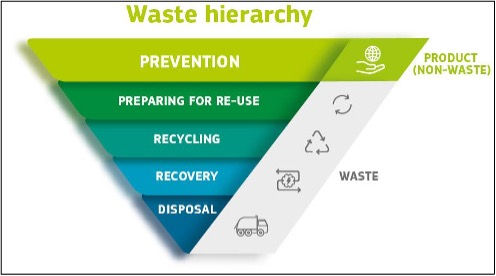Empowering Communities: A Recap of the Citizen Engagement Workshop in Madrid for Neighbourhood Improvement
- Apr 22, 2024
- 3 min read
Updated: Apr 23, 2024
In a dynamic and collaborative effort to foster community-driven change, Horizon 2020-funded EU project, PROBONO, hosted an engaging citizen workshop in Madrid last November. The PROBONO project aims to revolutionise the European construction industry by collaboratively developing scalable, sustainable, and energy-positive Green Building Neighbourhoods (GBNs). The EU project is exploring how to build GBNs in six different Living Labs across Europe, highlighting the importance of integrating local needs and interest in the developments. Green Building Neighbourhoods (GBNs) in PROBONO incorporate green buildings at a district level with sustainable energy, mobility management and infrastructure to ensure a just transition that maximises economic and social co-benefits tailored to the district’s profile.

Progress and Achievements
The goal of the workshop in Madrid was to demonstrate how remarkable results can be, when residents actively participate in the decision-making processes that shape their neighbourhoods. By stimulating a sense of responsibility, PROBONO encourages citizens to become proactive agents of change in their communities. The event aimed to bring together residents of the surrounding neighbourhood, local retailers, local authorities, non-governmental organisations (NGO’s), community groups and project stakeholders to empower and explore innovative ways to enhance neighbourhood improvement initiatives, for a more vibrant and sustainable neighbourhood and the betterment of the local community.
As the foundation of the workshop, prior to the event citizens with a collective passion for their neighbourhood were asked for their input on which of the sustainable community-managed infrastructures they regard to be the most important. Then on the workshop, participants had the chance to indulge into discussions about the most relevant topics by adopting analogue or digital tools to collaborative mapping.
One highlight of the workshop was the interactive group sessions, where citizens collaborated in groups on discussing angles of their opinions within the theoretical framework of a SWOT analysis, aiming to identify Strengths, Weaknesses, Opportunities and Threats on a local and global level. By examining key positive and negative factors that influence the future development of the project, participants could recognise certain opportunities or limitations to the respective green initiatives.
The workshop was structured in four phases, each one represented by the type of energy and its corresponding forms of management. Participants had to select, by team, the type of infrastructure of their choice and its respective management modality. Through these elaborate discussions, participants could benefit from learning about new technologies, or green initiatives that are already in action in other countries, and how to manage these concepts in the local context. Some of these topics were within green infrastructure, such as the implementation of green rooftops or rooftop gardens, while others tapped into renewable energy solutions, the usage of electric vehicles, or energy efficient heating alternatives.

Impact of the Workshop
It is essential to acknowledge the significance of incorporating local needs and interest in these kinds of developments. However, given the varied perceptions of citizen engagement in numerous local authorities, the objective of this innovative approach is to explore, assess and develop the potential value that the involvement of the local public can offer when implemented already during the pre-design phase.
Besides that, the goal of the workshop was also to encourage local citizens to assist in identifying and devising a list of requirements that could be included in the beginning of the planning process, to ensure that their local needs are not only heard, but also integrated into the construction design of the buildings in their immediate neighbourhood.
According to local business leaders, the participation of citizens in urban rehabilitation projects that include sustainable infrastructures is important and has a great impact. This way, they are enabled to have a better insight into the development projects, and they acquire background knowledge of the reasons behind decisions, which can ultimately also contribute to reducing opposing opinions or resistance to new solutions.
In addition to these positive outcomes, by fostering a sense of community among the residents, the workshop also provided a platform for networking and potentially forming fruitful partnerships. PROBONO facilitated these connections, bridging the gap between citizens and stakeholders, thereby strengthening the foundation for future collaborations as well.
Driving Sustainable Change
By bringing residents together, fostering collaboration, and providing the necessary tools, PROBONO is paving the way for citizens to actively participate in shaping the future of their neighbourhoods. As the project participants are now moving on to next phases, the hope is that this event serves as a blueprint for other cities and projects to harness the power of citizen engagement and a bottom-up culture, and foster positive change within green transitions.




Comments